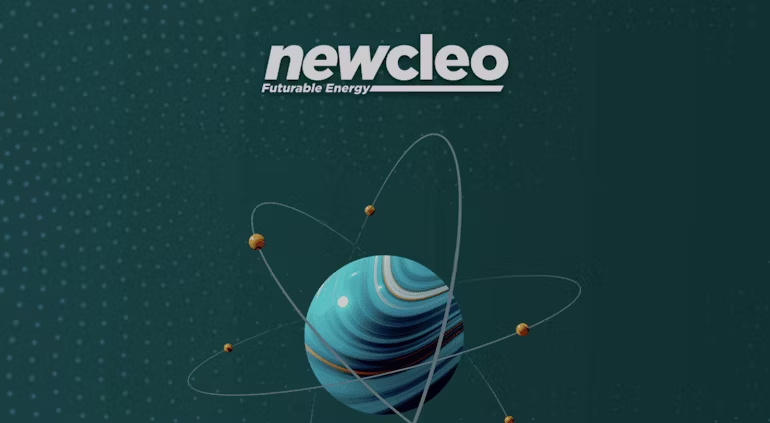Field
- Shaurya Garg

- Jul 19, 2025
- 3 min read
The world transition to renewable energy illustrates that if we are going to make power for the future, we also have to store it. While solar and wind are very abundant, they are also very intermittent. Field is addressing that question. The firm is developing and running grid-scale battery storage infrastructure to store renewable energy when the sun is not shining or the wind is not blowing. The company is enabling the modern power grid to run more smoothly and bringing Europe closer to net-zero goals.
Launched in 2020 by Amit Gudka, a co-founder of Bulb Energy, Field is working to accelerate decarbonization across Europe through: developing large scale battery energy storage solutions. The firm has a vertically integrated model with respect to the battery storage projects, including development, financing, construction, operation and real-time energy optimization. Field just doesn't store energy: it increases the value of stored energy. Their batteries draw on off-peak hours to charge and produce revenue by discharging when the grid is being stressed. They mitigate grid volatility, and also replace fossil fuel peaker plants.

Field has grown significantly since 2025, operating across the UK, Spain, and Italy, and as part of its pipeline, has deployed 4.5 GWh, including 800 MWh from a recent Hartlepool project. The company had only 53 employees twelve months ago - the company has grown to around 86 employees in total today. Key operational sites for Field are Oldham, Gerrards Cross, and Newport; the company is also creating a pipeline for a further 210MWh in the UK. Field has opened new regional offices in Barcelona and Rome, which enables deep market access and allows the whole project to be delivered in Southern Europe.
The firm’s growth is propelled by incredible £277 million (around $355 million) capital procured, comprising £77 million delivered in 2022 from Plural, LocalGlobe and Triple Point TEEC and £200 million this year from DIF Capital Partners. Clearly a strong vote of confidence in the ability to continue to expand multi-country, and develop capital in these infrastructure assets. Some financial information for Field is available, although it is still in a high-growth, capital intensive phase. For its first financial period, a 15 month period ending March 2022, the firm reported a loss before taxes of £2.65 million. This is expected with a company which is still building out its infrastructure, and because the process of revenue generation did not begin until operational sites, like Oldham, came online. Field's operational projects began to create revenue sources from energy arbitrage market participation, revenues from grid balancing services, and revenues from capacity contracts, by the end of 2024. Although the firm has not disclosed its aggregate profit as of 2025, analysts expect that Field has sufficient cash flows from its underlying battery assets to become cash flow positive over the next several years, especially with the arbitrage in energy prices and demand for flexibility services.
Field operates a smart performance-based model of pricing and income generation that is grounded in the principles of energy markets. Revenues derived from energy arbitrage are generated by charging batteries during low-cost periods, and discharging the batteries during high-cost periods, while earning a margin with each cycle. The company participates in, and generates revenues from, grid balancing services, the payment systems for which compensates grid stability of the electric system, capacity markets and compensation available through tariffs under grid balancing. The price for the services is priced in real-time as it works with asset optimization. It does not work with subscription-based services, and earnings are only generated once the services have been met in real-time.
In short, it is a unique company that is growing rapidly. Field is not the only one moving towards large scale battery storage, which will be a combination of legacy and new companies that will also be vying to grab market share for electric battery storage deployment. This includes Zenobe Energy, Gresham House Energy Storage Fund, Highview Power, Fluence, and Form Energy. The firm also differs from its competitors by using a vertically integrated model to assist its rapid expansion into multiple countries, as well as ensuring strong financial structure (ie., ensuring loan support through ESG linked financing). Most of its competitors depend on, and/or are built from a third-party development or trading platform; Field has brought all aspects in-house, which reflects speed, flexibility and control of outcomes upon completion of each project.
As the founder of Field, Amit Gudka shares, “We’re building the infrastructure the world needs to get to net zero—and we’re doing it quickly.” With an expanding team, project pipeline, and supportive investors, the firm is positioned to lead Europe into the next generation of energy infrastructure. As the future of power systems evolves to renewable energy, and battery storage is mandated, not discretionary. Field's vision and performance suggests they will be ready to take on that demand.
Click here to access Field's website.









Comments